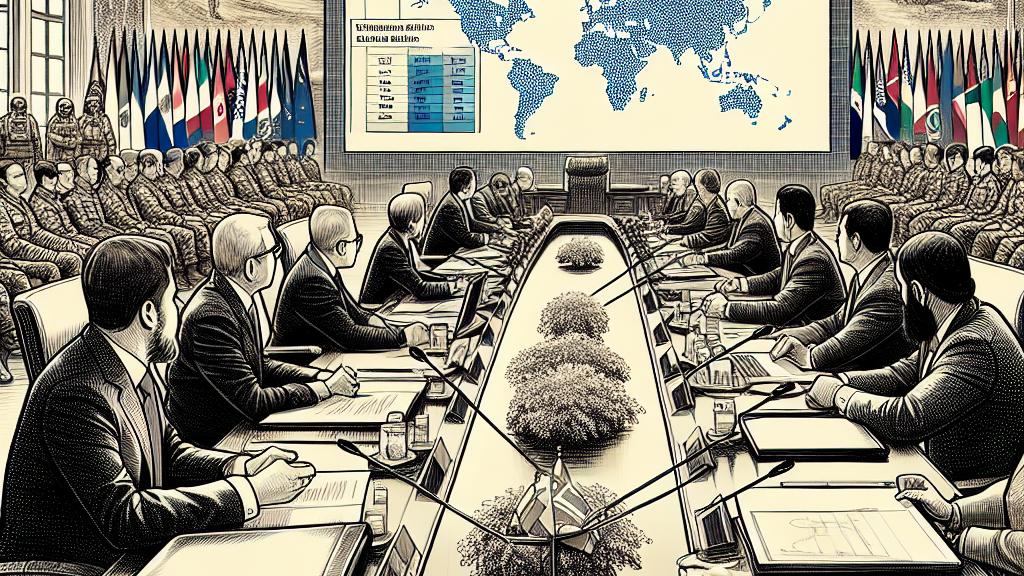South Korean Delegation Engages with NATO on North Korean Military Concerns
Overview
- South Korea's delegation is briefing NATO on the unsettling presence of North Korean troops in Russia.
- Mounting fears arise that these troops could impact the ongoing conflict in Ukraine, complicating the geopolitical landscape.
- In light of Russia's invasion, cooperation between South Korea and NATO has reached unprecedented levels.

Geopolitical Context Under Scrutiny
On October 28, 2024, a high-ranking South Korean delegation convened in Brussels, Belgium, aiming to elucidate the troubling situation regarding North Korean troops stationed in Russia. Current intelligence indicates approximately 12,000 North Korean soldiers—encompassing 500 officers and three generals—are actively training at multiple military bases within Russia. This alarming deployment raises considerable concern among NATO allies, particularly the United States, which is wary of how these forces might be utilized against Ukraine. Simply put, the stakes have never been higher, and the implications could reverberate throughout Europe and beyond.
Evolving Military Strategies and Stronger Alliances
In light of the evolving military dynamics, the collaboration between North Korea and Russia poses serious implications for long-standing geopolitical alliances. South Korea's recent intensified engagement with NATO marks a notable shift from its previously measured stance. President Yoon Suk Yeol, for example, has broken ground by participating in NATO summits and bolstering military ties through joint exercises and intelligence-sharing initiatives. This transformation underscores an urgent need for unified action in confronting the challenges posed by authoritarian regimes. As South Korea aligns its policies with NATO, it sends a resounding message: collective security is paramount in an unpredictable world.
Reassessing Strategies and Forward-Looking Perspectives
The presence of North Korean troops raises critical questions about South Korea's military and diplomatic strategies moving forward. It compels policymakers to reconsider their support for Ukraine as the threat of North Korean involvement looms larger. Ukrainian President Volodymyr Zelensky has voiced concerns over this potential escalation, emphasizing that with North Korean forces set to become active participants, the conflict could transform drastically. Furthermore, recent statements from South Korea's National Intelligence Service highlight an intention to reassess military aid to Ukraine as part of a broader strategy to promote stability in the region. In conclusion, these developments cast a spotlight on the importance of adaptability among democratic nations, as they navigate a rapidly changing geopolitical environment fueled by alliances, military posturing, and the ever-present specter of conflict.

Loading...